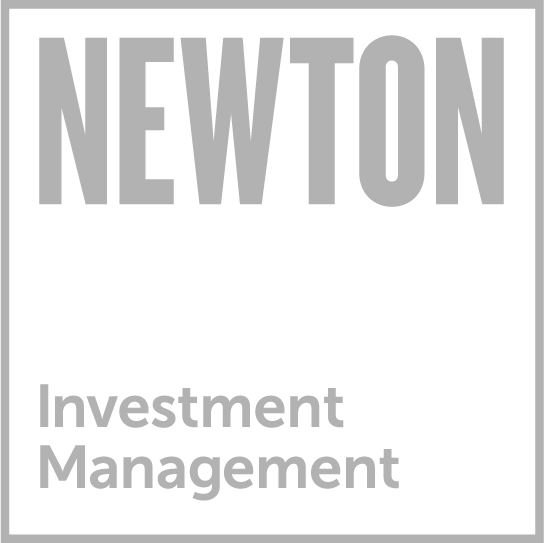February 2024
Economic renaissance or another false dawn? Walter Scott’s Executive Director Charlie Macquaker and Investment Analyst Connor Graham recently spent two weeks in Japan, gauging the tempo of the country, and also meeting with leading companies in what remains a fertile hunting ground for the long-term investor, despite some of the nation’s challenges.

Our visit to Japan came at the tail end of what was a banner year for Japanese equities following a Covid-blighted 2022. This resurgence of enthusiasm stems from the confluence of a number of factors. The prospect of a breakout from the economy’s longstanding deflationary straitjacket, improvements in the country’s competitiveness thanks to yen weakness, moves to promote better corporate governance, and the relative cheapness of Japanese companies (many of which are replete with cash), have largely been behind the market’s revival.
News headlines over the last few months have tended to focus on the prospect of the Bank of Japan (BoJ) shifting to monetary policy normalization in view of above-target inflation. In our meeting with the central bank, it was evident that it is ‘acting cautiously’ with regards to any significant shift from its negative interest rate policy. Behind this reticence lies a lack of conviction that inflation is here to stay. Inflation has been falling, and price pressures are expected to moderate further as the impact of higher import and energy costs, which has been exacerbated by the weak yen, eventually dissipates.
Japan’s post-Covid recovery hit a speedbump in the third quarter of 2023, as overseas uncertainty affected business investment, while inflation weighed on the consumer. Despite current pressures on the economy, the December Tankan, the BoJ’s quarterly sentiment survey, showed growing confidence amongst manufacturers and non-manufacturers alike, and this was evident in our meetings with a variety of companies. Yen weakness, easing supply constraints, inbound tourism, and expectations of an improved domestic consumer environment, despite the third-quarter hiccup, have helped drive this optimism.
Rising real wages in Japan would improve the consumption outlook and help distance the economy from deflation, but nominal wage growth hasn’t kept up with rising prices. However, wages are set to rise further, amid structural changes in the labor market arising from the country’s demographics and greater worker mobility. We got the sense that the BoJ is not worried about a wage spiral inflationary blowout, but there are noteworthy pay rises happening here and there, and it was apparent companies are having to be competitive on the wage front. Encouragingly, more companies spoke of employee stock ownership programs to reward workers, which is positive from an investor and market angle. With incomes rising, and ‘Japan Inc’ more willing to pass on cost increases, perhaps the stars are aligning for a break from a stifling deflationary mindset.
These various economic developments represent an improvement on a broad investment narrative often blighted by stagnation and Japan’s well-catalogued structural impediments such as poor demographics. We have always had a more nuanced view. Over the forty years we have been visiting and investing in Japan, we have often seen promise give way to false dawns. As bottom-up investors, our view on companies has never been based on a ‘macro’ wish list or market mood swings.
Through the lens of fundamental analysis, we have always found Japan home to many innovative, leading companies with enviable market positions,sound financial profiles and excellent management, that can compete and thrive on a domestic or global stage and deliver strong returns to investors. Over the course of our four-city, 23-company visit we met with a number of such businesses.

Shin-Etsu Chemical
Shin-Etsu Chemical sits firmly in the leadership bracket, in our view. After a period of exceptional profit expansion, parts of the business are undergoing a normalization of growth. Shin-Etsu is the world’s leading polyvinyl chloride (PVC) producer, and the company has been benefiting from extraordinary profit spreads between input costs and end prices. However, higher mortgage rates have hit the residential market in the US with concomitant effects on PVC profitability. The company’s view is that a recovery should be forthcoming as US interest rates are cut, and continued growth in the use of PVC in housing should lend long-term support. The company also sounded upbeat on infrastructure-related demand, with the US Inflation Reduction Act working in its favor. Shin-Etsu also makes key products involved in semiconductor production. Although this business has witnessed a recent growth hiatus, the long-term story is still sound with the overall semiconductor market expected to rise from approximately US$600bn in 2021 to US$1tn by 20301 driven by growth in data, Artificial Intelligence (AI) and auto-related demand.
Japan has been seen as a beneficiary of the ‘China+1’2 diversification shift, and indicative of this, Shin-Etsu discussed developments with regard to rare earths. This is an area where industries such as electric vehicle (EV) manufacturers are over-reliant on China, and Shin-Etsu is very close to commercializing a new product which may be a technological breakthrough in significantly reducing rare earth metal requirements, in our view.
FANUC
While ‘China+1’ represents an opportunity, a variety of companies we met with spoke about stodgy demand conditions in China, with only a few signs of imminent respite. In the thirty-plus years we’ve been visiting Fanuc, we’ve always been impressed by the company’s commitment to innovation. The ongoing remodeling of the Yamanashi headquarters production facility, situated in the foothills of Mount Fuji, speaks to investment in the business despite some of the current headwinds. The company’s challenges include inventory corrections across much of the business, and China orders are noticeably weak. However, in the long run, tight labor markets amid demographic challenges, the effect of high inflation, and corporate pursuit of efficiency, points to an onward march of the factory automation trend.
OBIC
For a country so vested in the production of information technology hardware, the forces of digitalization have yet to permeate through many enterprises. In a standout meeting, enterprise software company Obic explained how it is outperforming its Japanese peers and some international majors by offering more-tailored, better-bettervalue solutions. The shift to the ‘cloud’ has helped growth and profitability as well as scalability, and as it penetrates the larger company segment there is still lots of room for growth.
“Nippon Olé!” is a favored chant of supporters of the Japanese national football (soccer) team. As per the Spanish meaning, it represents approval and encouragement. Perhaps it can be aptly applied to the current situation in Japan, given the renewed vigor of the stock market, improving governance and hopes of an economic reset that may see the country finally shake off deflation. But our optimism derives more from the individual company opportunities we see in Japan. Trips such as these are key elements of our investment approach, giving us deeper insights into both existing holdings and potential investment candidates. The visit affirmed our view that there are plenty of worldclass companies in Japan that are taking advantage of long-term growth trends, irrespective of the country’s economic and structural challenges.
1. Source: McKinsey & Company, Exploring new regions: The greenfield opportunity in semiconductors, January 2024.
2. China +1 is the business strategy to avoid investing only in China and diversify business into other countries.
IMPORTANT INFORMATION
All investments involve risk, including the possible loss of principal. Certain investments involve greater or unique risks that should be considered along with the objectives, fees, and expenses before investing. Company information is mentioned only for informational purposes and should not be construed as investment or any other advice. The holdings listed should not be considered recommendations to buy or sell a security.
BNY Mellon Investment Management is one of the world’s leading investment management organizations, encompassing BNY Mellon’s affiliated investment management firms and global distribution companies. BNY Mellon is the corporate brand of The Bank of New York Mellon Corporation and may also be used as a generic term to reference the corporation as a whole or its various subsidiaries generally.
This material has been provided for informational purposes only and should not be construed as investment advice or a recommendation of any particular investment product, strategy, investment manager or account arrangement, and should not serve as a primary basis for investment decisions.
Prospective investors should consult a legal, tax or financial professional in order to determine whether any investment product, strategy or service is appropriate for their particular circumstances. Views expressed are those of the author stated and do not reflect views of other managers or the firm overall. Views are current as of the date of this publication and subject to change.
The information is based on current market conditions, which will fluctuate and may be superseded by subsequent market events or for other reasons. References to specific securities, asset classes and financial markets are for illustrative purposes only and are not intended to be and should not be interpreted as recommendations. Information contained herein has been obtained from sources believed to be reliable, but not guaranteed. No part of this material may be reproduced in any form, or referred to in any other publication, without express written permission.
Walter Scott & Partners Limited (“Walter Scott”) is an investment management firm authorized and regulated in the United Kingdom by the Financial Conduct Authority in the conduct of investment business. Walter Scott is a subsidiary of The Bank of New York Mellon Corporation.
Not FDIC-Insured | No Bank Guarantee | May Lose Value
© 2024 BNY Mellon Securities Corporation, distributor, 240 Greenwich Street, 9th Floor, New York, NY 10286
MARK-490218-2024-01-29






